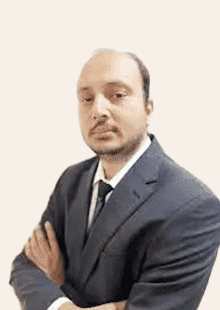Head Injury
Head Injury Specialist
Best Neurosurgeon in Gurgaon
Dr. Saurabh Sharma is a skilled and experienced Neurosurgeon with over 16 years in the field of medicine. He completed his MBBS from Dr. B.R. Ambedkar University, Agra in 2009, followed by an MS in General Surgery from PT. B.D. Sharma University of Health Sciences, Rohtak in 2014. He further specialized in Neurosurgery with an MCh from Kerala University of Health and Applied Sciences, Thrissur in 2019.
His clinical expertise covers a wide range of advanced neurosurgical and ENT-related procedures, including Carotid Endarterectomy, Turbinate Reduction, Ear Surgery, FESS (Functional Endoscopic Sinus Surgery), and Vertebroplasty, among others.
I believe in treating every patient as an individual, taking time to understand their concerns, and working together to find the best treatment plan.
Available at: T.R.U.E. Hospitals
Timing: Mon–Sun | ⏰ 24×7 Open
How Head Injury is Treated at T.R.U.E. Hospitals?
At T.R.U.E. Hospitals, head injuries are managed by a specialized team including neurologists, neurosurgeons, and rehabilitation experts. Treatment begins with a prompt assessment using advanced imaging techniques like CT or MRI scans to determine the extent of the injury. Based on the diagnosis, treatment may include:
- Medications to reduce brain swelling, control pain, and prevent seizures.
- Surgical interventions to relieve pressure, repair damaged tissue, or remove hematomas.
- Intensive rehabilitation programs aimed at restoring motor skills, speech, cognitive functions, and emotional well-being.
- Continuous monitoring and personalized care plans ensure optimal recovery and minimize long-term effects.
What are Common Complications of Head Injury?
Head injuries can lead to various complications depending on severity and injury location, such as:
- Cognitive impairments: memory loss, difficulty concentrating, poor judgment.
- Physical symptoms: persistent headaches, dizziness, seizures, muscle weakness, and balance problems.
- Sensory issues: blurred vision, tinnitus (ringing in the ears), and altered taste or smell.
- Emotional and behavioral changes: depression, anxiety, mood swings, irritability, and impulsiveness.
- Communication difficulties: slurred speech or trouble understanding language.
- Serious medical risks: infections (especially in open head injuries), hydrocephalus (fluid buildup in the brain), stroke, or blood clots.
- In severe cases, coma or vegetative states can occur.
Early diagnosis, prompt treatment, and ongoing rehabilitation are critical to managing these complications and improving long-term outcomes.

Don’t Hesitate To
Contact Us
In urgent situations, you can count on us. Learn more about our emergency services and the specialized care we provide around the clock.

Call Us - 9220472227
FAQ About Brain Injury
How is a brain injury diagnosed?
Diagnosis involves neurological examination, imaging (CT/MRI), and sometimes cognitive or neuropsychological testing.
When is surgery needed for a brain injury?
Surgery may be necessary to remove clots, repair skull fractures, relieve pressure from swelling, or insert intracranial monitoring devices.
Can you fully recover from a brain injury?
Recovery depends on the severity and location of the injury; while many patients recover fully, others may experience lasting cognitive or physical changes.
How long does rehabilitation take after a brain injury?
Rehabilitation often begins in the hospital and may continue for weeks to months—sometimes longer—through outpatient therapy and home exercises.
What are common complications of brain injury?
Potential complications include persistent headaches, memory loss, balance issues, mood swings, and epilepsy.




